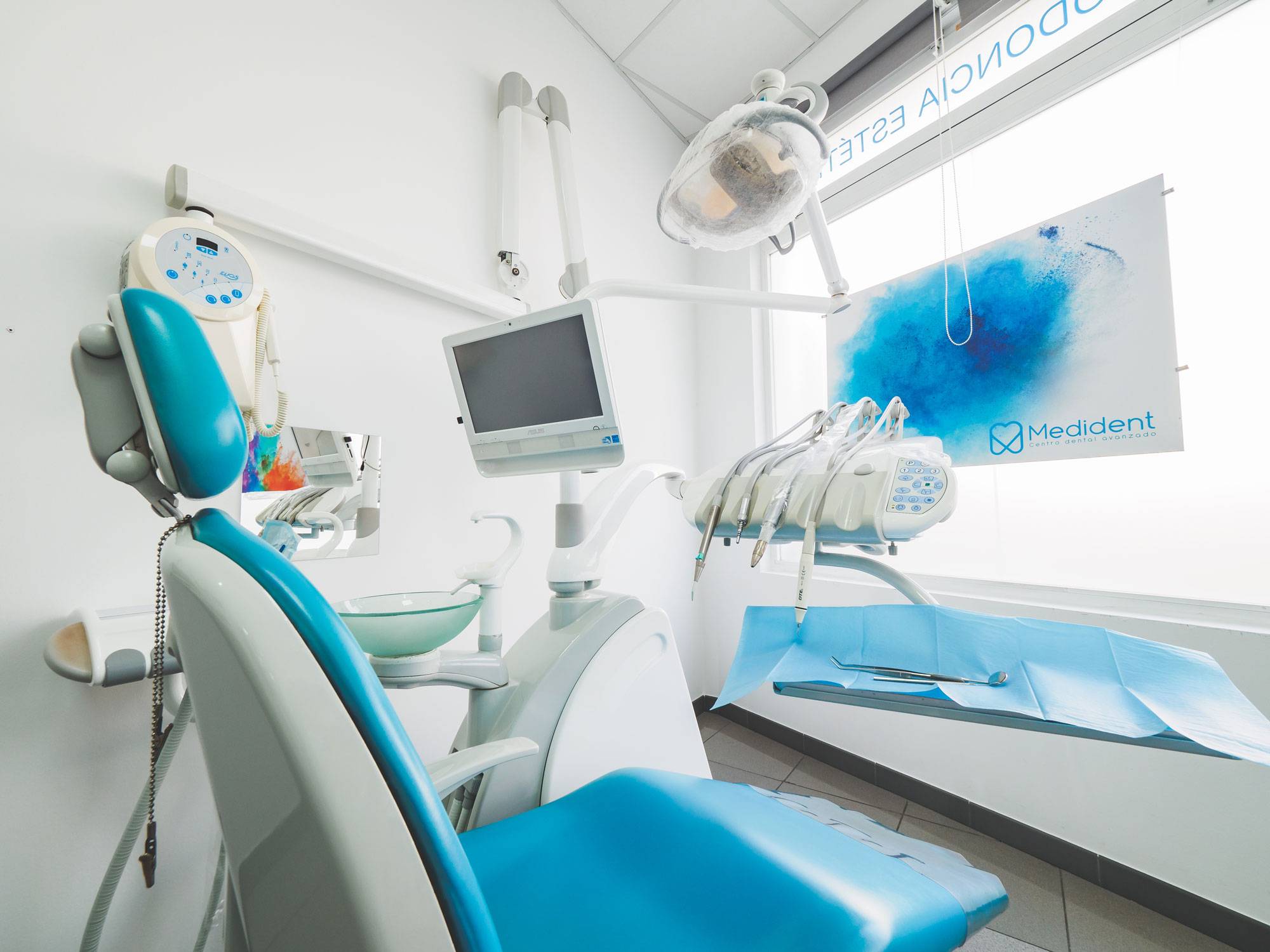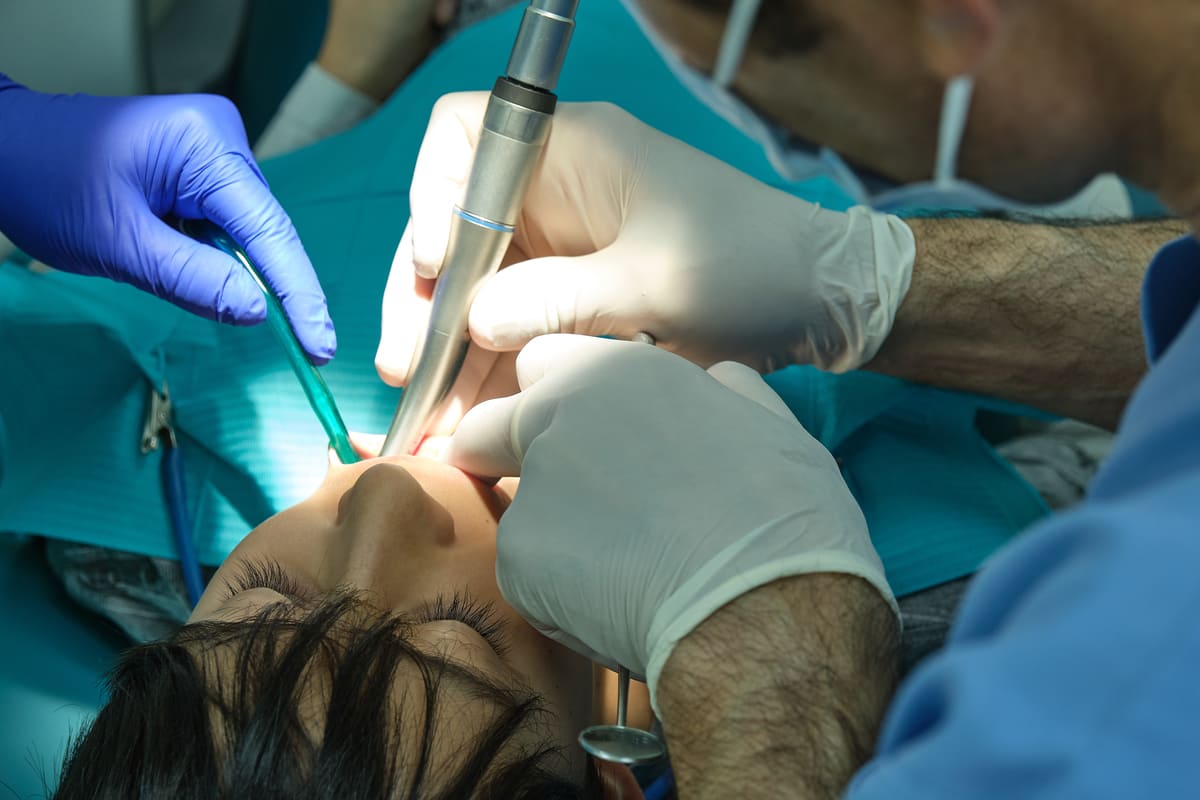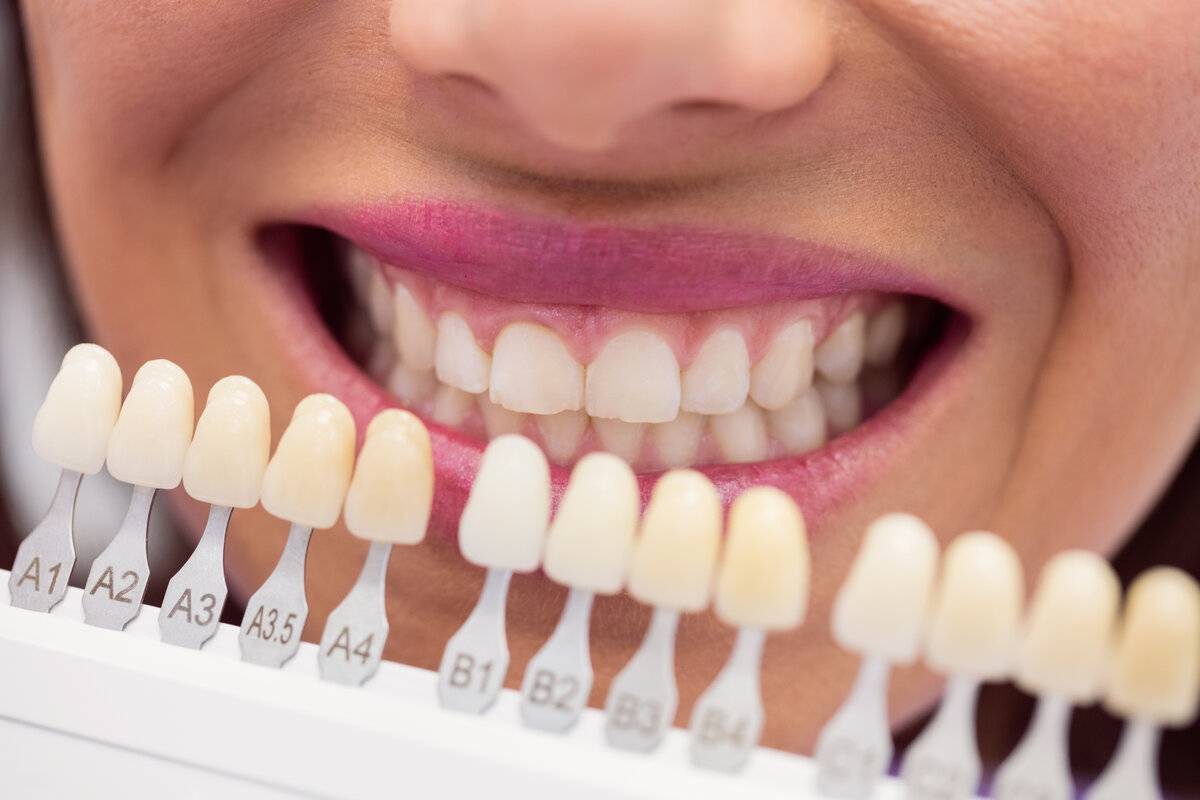Toothache is very common but no less annoying. Whether it is an acute or constant pain, this discomfort can affect our daily activities and diminish our quality of life. At Medident, as a clinic specialising in dentistry, we know the causes and also the solutions to relieve toothache and prevent future problems. In this article we reveal the keys to tooth pain and what to do if it hurts.
Some of the most common causes of tooth pain
The causes of toothache can be very diverse and so can their location. You can feel a toothache, gum pain, pain in a specific tooth, general mouth pain…, etc. The reason for toothache usually has to do with these causes:
A filling has fallen out
If a filling falls out it can expose the internal structure of the tooth to bacteria and air, which can cause pain and sensitivity.
Abscess
A tooth abscess is an infection at the root of the tooth or in the gum surrounding the tooth. Symptoms may include severe pain, swelling, fever and difficulty swallowing or speaking.
Tooth decay
A cavity is a hole in the tooth that occurs when bacteria in the mouth turn food into acids that damage tooth enamel. If left untreated, a cavity can penetrate the tooth and reach the nerve, which can cause severe pain.
Broken tooth
A broken tooth can be the result of an injury, a fall, or weakening of the tooth from decay. Symptoms can include pain, sensitivity, swelling and difficulty chewing.
Wisdom teeth
Wisdom teeth are the last molars to grow into the mouth, and can cause pain and discomfort if they don’t have enough room to grow or if they grow in unevenly. Symptoms can include pain, swelling and difficulty opening the mouth. In some cases, toothache can become unbearable and wisdom teeth may need to be extracted to relieve the pain.
Receding gums
Receding gums is a condition in which the gums pull away from the teeth, exposing the root of the tooth and making them more sensitive to cold, heat and sweet foods. Receding gums can be caused by gum disease, aggressive brushing or ageing and this can lead to sore gums and very unpleasant sensitivity.
TMJ
The temporomandibular joint (TMJ) is the joint that connects the jaw to the skull. TMJ dysfunction can cause pain in the jaw, facial muscles and neck. It also causes headaches and hearing problems.
Bruxism
Bruxism is a condition in which you clench or grind your teeth involuntarily. Bruxism can cause headaches, jaw pain, sensitive teeth and general toothache.
and general tooth pain.
Tooth sensitivity
With tooth sensitivity you experience pain or discomfort in your teeth when they are exposed to certain stimuli, such as hot or cold foods or drinks, sweets, acids or when breathing in cold air. This is because the protective layer of tooth enamel has worn away or the gums have receded, exposing the underlying dentin and nerve endings in the teeth.
What can I do at home to relieve toothache?
When you feel tooth pain, you can take some steps at home to temporarily relieve the discomfort:
Salt water mouthwash
Prepare a solution with warm water and a tablespoon of salt. Rinse your mouth for about 30 seconds and then spit out the solution. Repeat several times a day to relieve pain and reduce inflammation.
Hot or cold compresses
Apply a hot or cold compress to the side of your face where you feel the pain. For example, an ice pack wrapped in a towel is good for reducing swelling and pain. A warm compress, such as a warm towel, can also be helpful to relax tense muscles and reduce pain. But remember not to apply heat directly to the painful area, as this can aggravate the situation.
Over-the-counter pain relievers
Over-the-counter pain relievers such as ibuprofen or paracetamol can be helpful in relieving toothache pain. However, it is important that you follow the instructions on the package and do not exceed the recommended dosage.
Avoid hard or sticky foods
Maintain a soft diet and avoid hard or sticky foods. You should also avoid hot or cold foods or drinks as they can aggravate dental pain. Opt for soft foods, such as mashed potatoes, yoghurt and soups, until the pain subsides. Also, avoid chewing food with the affected tooth and chew with the other side of your mouth.
How do I know if my toothache is serious?
Tooth pain in itself is an alarm that something is wrong and is an indication that you should contact your dentist. However, here are some important symptoms to look out for:
Persistent pain
Tooth pain that persists for several days or weeks may indicate a more serious infection or inflammation in the dental pulp or gums. If not treated properly, this can lead to serious complications, such as loss of the tooth or spread of the infection to other parts of the body.
Extreme sensitivity
Extreme tooth sensitivity can be caused by many factors, such as exposed dentin (the layer underneath tooth enamel), tooth decay, tooth fractures or periodontal disease. If sensitivity persists or worsens, it may be a sign of a more serious underlying dental condition that should be treated by a dentist.
Gum inflammation
Inflammation in the gum may be a sign of periodontal disease, a bacterial infection that can cause tooth loss and inflammation of the surrounding tissues. If inflammation persists or worsens, it is important to seek dental treatment as soon as possible to avoid complications.
Bleeding gums
Bleeding gums can also be a sign of periodontal disease, but can also be caused by excessive toothbrushing or brushing too hard. If bleeding persists or worsens, you should be evaluated by a dentist to rule out periodontal disease or other more serious conditions.
Fever and headache
Fever and headache may be signs of infection in the dental pulp or gums. If these symptoms persist or worsen, it is very important to see a medical professional.
Persistent bad breath
Recurring bad breath can be caused by periodontal disease, dental infections or even general health problems. If bad breath continues after brushing your teeth and using mouthwash, it may be a sign of an underlying dental condition.
Problems chewing or speaking
Problems chewing or speaking may be a sign of a broken tooth, a dental infection or a periodontal condition. It is important to seek dental treatment to prevent tooth loss and other complications.
Loose or fractured teeth
Loose or fractured teeth can be caused by trauma, dental infections or periodontal disease. If left untreated, they can lead to tooth loss and more serious complications.
Tips for preventing toothache
Prevention is always the best option, so you can apply these simple tips in your daily life:
Brush your teeth twice a day
The build-up of plaque and bacteria on the teeth and gums is one of the main causes of toothache. Brushing your teeth twice a day, for at least two minutes, helps remove plaque and bacteria from the surface of your teeth and gums.
Floss your teeth
Brushing alone is not enough to remove all food debris and plaque from between the teeth and gums. Flossing daily helps remove food debris and plaque from places that the toothbrush can’t reach.
Avoid sugary foods and drinks
Sugary foods and drinks, such as soft drinks and sweets, can produce acid in the mouth, which weakens tooth enamel and causes tooth decay. Try to limit your intake of sugary foods and drinks and rinse your mouth with water after consuming them.
Eat a balanced diet
A balanced diet rich in nutrients, such as calcium and vitamin D, strengthens teeth and gums. It also helps keep your immune system healthy, which can help prevent infections.
Avoid biting on hard objects
Biting on hard objects, such as ice or pencils, can damage tooth enamel and cause toothache. If you have a habit of chewing on hard objects, try to find an alternative way to cut down, such as chewing sugar-free gum.
Schedule regular dental visits
Scheduling regular dental visits helps detect and treat dental problems before they turn into toothache. Dentists can perform professional dental cleanings and detect signs of cavities, gingivitis and other dental problems.
Conclusions
If you are experiencing dental pain and you are in Torremolinos, do not hesitate to contact us. In our dental clinic Medident we have a great team of dental professionals who will assist you and advise you on the procedure to follow to alleviate your pain and improve your oral health. We are committed to helping our patients maintain good dental health through personalised care and innovative solutions. Contact us today to schedule an appointment and maintain healthy teeth.









